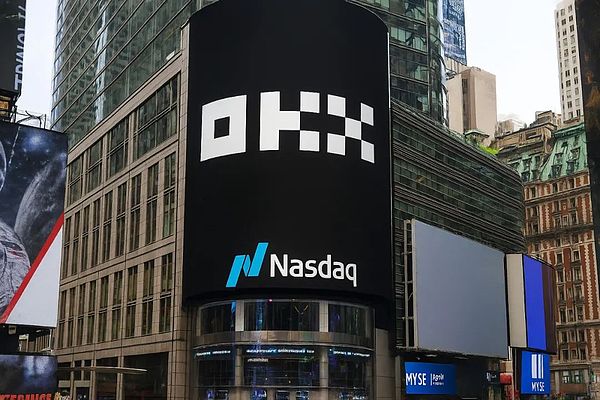If OKX successfully goes public in the U.S., it will join a growing but limited number of cryptocurrency companies such as Coinbase and Robinhood that have successfully listed in the U.S., which may lay the foundation for broader institutional recognition and the next wave of cryptocurrency applications.
OKX Considers U.S. IPO
Against the backdrop of continued deregulation in the U.S., cryptocurrency exchange OKX returned to the U.S. market in April this year and was reportedly evaluating an IPO in the U.S. With the platform coin OKB rising by more than 6% in a short period of time after hearing the news, the exchange's layout strategy of turning to traditional finance has also quietly emerged, and the distance between encryption and mainstream finance has been further shortened.
1. From a huge fine to the establishment of the headquarters: OKX returns to the United States
The Information reported that OKX is considering an initial public offering (IPO) in the United States. This top five Asian exchanges just reached a settlement of up to US$500 million with the US Department of Justice in February this year, involving its past unlicensed remittance business.
Just two months later, OKX immediately announced the restart of its US business and established a regional headquarters in San Jose, California, demonstrating its ambition to actively enter the US market.
While announcing its return to the United States, OKX appointed Roshan Robert, who had worked for Morgan Stanley and Barclays, as CEO of the United States to further strengthen his compliance and financial market experience background. He once said: "Our long-term goal is to create a crypto super app similar to WeChat, which is not only for trading, but also a gateway to life."

2. Crypto companies enter Wall Street: IPO becomes a new narrative
The report pointed out that OKX's IPO plan symbolizes a narrative shift in CEX layout: "The crypto industry is beginning to consider telling its own growth story in the language of traditional finance." From fundraising to listing, many Web3 exchanges, including CEX, have launched a series of projects. The company is turning to the mainstream capital market for recognition.
( Tether does not consider IPO, and each employee earns $130 million, making it the "bank" with the highest per capita profit in the world)
In fact, OKX is not the first case. Recently, cryptocurrency exchanges Kraken, Bullish, Gemini and stablecoin issuer Circle have also secretly submitted IPO documents or have successfully listed. All these actions show that the crypto industry is repackaging itself as a "financial technology company" with commercial viability and seeking to obtain larger-scale traditional capital support.
3. Robert talks about Web 3 companies entering the United States: It's not that difficult
In an exclusive interview with The Block last month, Roshan Robert emphasized that OKX's team in the United States has expanded to 500 people, distributed in New York, San Francisco and San Jose. In the future, it will establish a product line exclusively for the US market through a gradual and compliance-first approach. OKX will launch OKX Pay Wallet and debit cards: from wallets and DEX aggregators to the long road of payment compliance.
He also added: "We will not rashly launch a complete trading platform, but will start from the 'product entrance' such as wallets and Web3 tools, and gradually expand the trust and user base." This strategic rhythm also reflects the current Web3 companies' step-by-step approach when entering the highly regulated market.
4. Amazing valuation? Investors and regulators still have a cognitive gap
Even though the listing of crypto companies is becoming a current trend, their valuation model still causes surprise and anxiety among capital market observers. Reporter Yueqi Yan pointed out in the report that "even industry insiders are shocked by the valuation of some exchanges", indicating that there are still many gaps in the value assessment of crypto companies by all parties outside.
This "cognitive gap" also brings risks to the listing performance. If the traditional market misjudges the valuation of crypto companies, it will inevitably lead to drastic stock price fluctuations and repeated market sentiment, just like the current Circle.
OKX's intention to go public in the United States is a microcosm of the crypto industry's move towards the traditional capital market, showing that IPO is one of the means to promote the next stage of Web3 expansion, and the United States, a market once regarded as "blocking cryptocurrencies", has also become a hot spot for hot money.
 Catherine
Catherine





